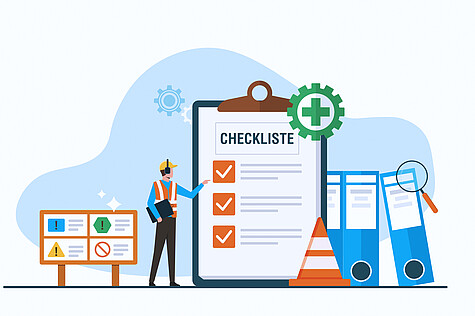
Acting correctly after fire damage
Causes of fire
A look at the fire cause statistics for 2022 from the Institute for Loss Prevention and Research shows that faulty electricity, but also human error, are among the most common causes of fire.
Fire cause statistics
Source: Institute for Loss Prevention and Research of the Public Insurers e.V.
The number of claims due to fire, lightning and explosion at deas has been between 200 and 240 fire claims per year over the past three years. The effects, i.e. the amount of the claim, depend in particular on whether there was a “major claim” in the year in question. In this respect, the total cost of fire damage varies greatly from year to year.
What to do in the event of a claim?
If fire damage has occurred, you should act “as a financially reasonable person would in your situation”, as the Federal Court of Justice put it in a ruling. To do this, you should take appropriate emergency measures. The next step is to report the damage to deas immediately and agree on how to proceed with us.
You can report the damage to us in a number of ways. Either fill out an online claim form (https://www.deas.de/schaden/schadenanzeigen/) or download a PDF for the claim form from our website and fill this out. Of course, you can also report the damage to your contact person. A personal conversation can be particularly helpful in the case of major damage. You can also report minor damage by email to your contact person. Or simply use our online tool ecconnect.
No matter how you report the damage, we will take care of your reporting obligations to the insurer and, in the case of major damage, we will also assist you personally.
Basic information
Depending on the type of damage incurred, you should note the following:
(This is only advice and does not claim to be correct or complete. It may also be that individual pieces of advice are not relevant for all fire damage. Please always follow the advice of the fire brigade or other fire specialists.)
- Immediately switch off electrical or electronic systems and secure them against being switched back on (not if switching off the power would have significant consequences, e.g. in the chemical or glass industry).
- Also disconnect any emergency power supplies (UPS).
- Switch off machines and production plants.
- Shut down air conditioning systems, gas and compressed air supplies.
- Do not carry out any unnecessary function tests on systems or equipment.
- Leave the checking to the appropriate specialist companies.
- Secure:
- areas at risk of collapse against entry;
- the damage site against entry by strangers;
- adjacent areas against environmental damage caused by leaking liquids or extinguishing water;
- the damage site against rainwater, which can cause environmental damage due to leaching.
- Document the cause of the damage and the damage itself with photos or short videos (file size).
- Keep all items until we or the insurer releases them.
What should be especially noted in the event of fire damage?
- Divert flue gases to the outside (open windows, exterior doors and gates, smoke and heat exhaust ventilation systems).
- Remove extinguishing water by suction, mopping or other means (do not forget low-lying channels and environmentally sound disposal).
- Protect endangered objects from further damage by extinguishing water or precipitation by covering or relocating them.
- Portable electronic devices should be moved to dry, heated rooms.
- Relative humidity should be reduced to below 40 percent as quickly as possible to prevent corrosion (dehumidifiers).
- Protect metallic surfaces of machines, supplies and technical equipment by applying corrosion inhibitors.
- Protect unaffected areas from the spread of soot by laying out damp cloths or floor mats at transition areas.
Thomas Hergarten
